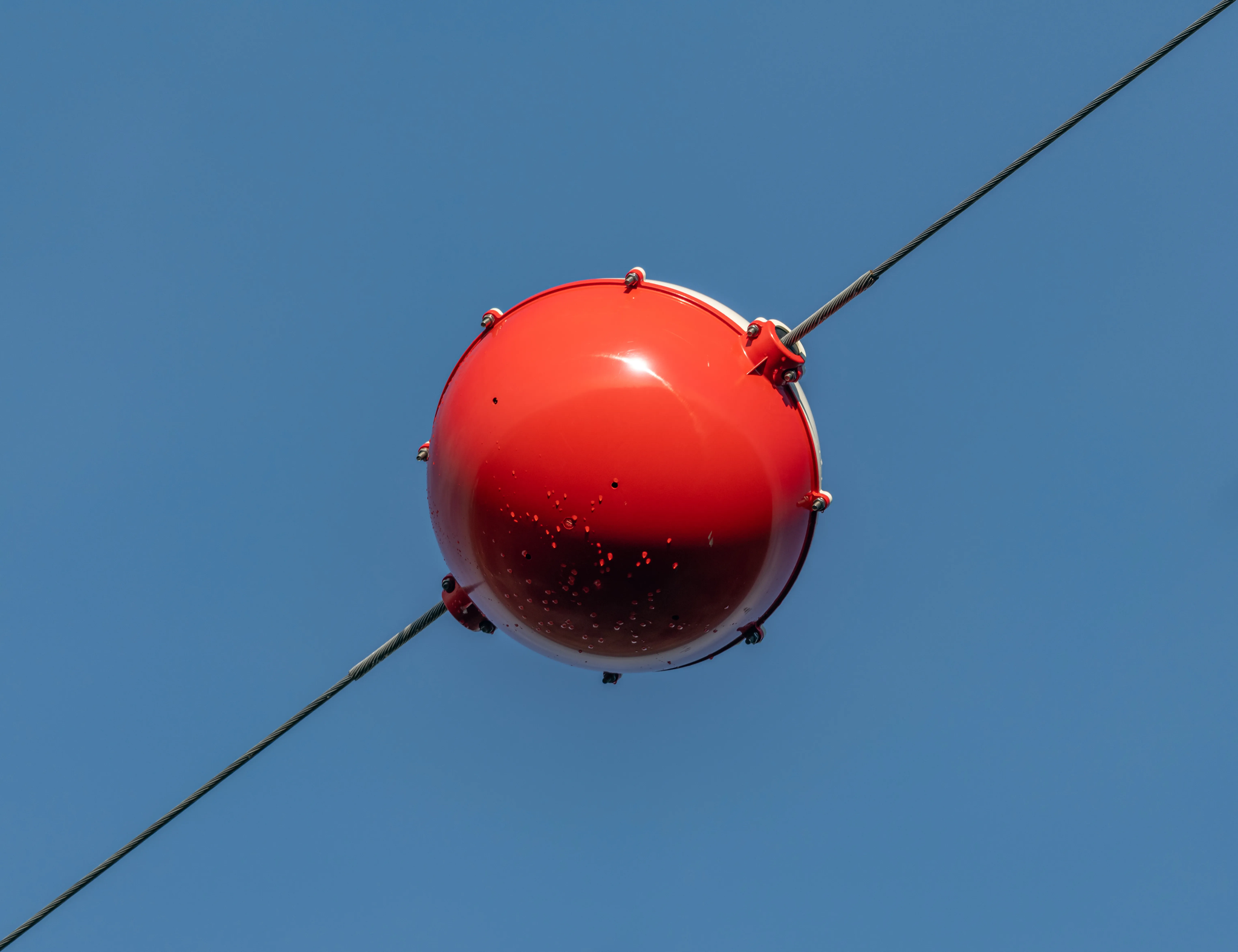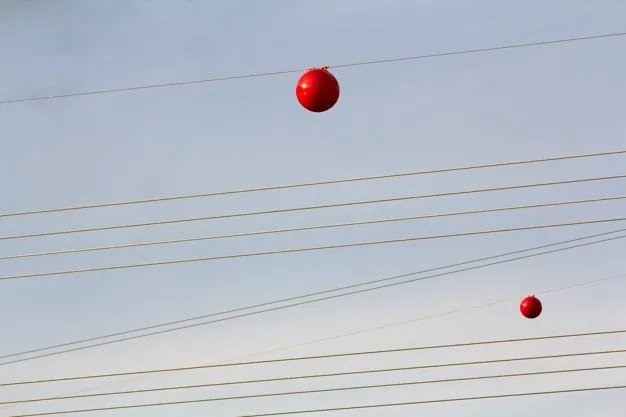Have you ever looked up and noticed vibrant, colorful balls hanging from power lines? These eye-catching spheres, known as aerial marker balls, serve a vital role in ensuring safety for both pilots and people on the ground. Let’s dive into why these brightly colored markers are essential and how they contribute to safety in the skies.

Enhancing Sky Safety
These bright spheres dangling from power lines aren’t just for decoration. Commonly referred to as visibility markers or aerial marker balls, their primary purpose is to alert pilots to the presence of power lines, especially in areas where planes might fly low.
Think of these markers as signals that help steer aircraft away from potential hazards. For example, planes flying near canyons, rivers, lakes, or airports may encounter power lines in their flight path. Without visibility markers, these power lines could pose serious risks to low-flying aircraft.
To prevent accidents, the Federal Aviation Administration (FAA) mandates the installation of these markers in areas where low-flying planes are common. By serving as a visual warning, these markers protect pilots in the air and safeguard people on the ground.

Bright Colors That Stand Out
Why are these marker balls so colorful? The answer lies in their need to be highly visible. Colors like orange, white, and yellow are chosen because they stand out against a variety of backgrounds, whether it’s a blue sky, green terrain, or urban landscape. These vibrant hues ensure that pilots can easily spot power lines from a distance, allowing them to navigate safely.
Smart and Safe Material
You might wonder what these markers are made of. Interestingly, they’re crafted from plastic, a material chosen for its safety and durability. Plastic doesn’t conduct heat or electricity, meaning the markers won’t interfere with power lines. Additionally, this material ensures the markers are lightweight yet sturdy enough to withstand environmental factors like wind and rain.

Technical Features: Size and Weight
Aerial marker balls come in various sizes, typically ranging from 20 to 36 inches in diameter. While they might look small from the ground, they’re designed to weigh between 11 and 17 pounds. This size and weight make them easy to attach to power lines while ensuring they remain stable and effective, even in windy conditions.
The Origin of Marker Balls
The history of these markers is as fascinating as their purpose. Their creation dates back to the early 1970s, during the tenure of Winthrop Rockefeller, then-governor of Arkansas.
Rockefeller was flying on a plane with Edward Holland, the head of the Arkansas Department of Aeronautics, when he noticed how dangerously close their plane came to power lines during descent. Concerned about the safety of pilots and passengers, Rockefeller urged Holland to find a solution to make power lines more visible to pilots.

Holland enlisted the help of engineer Jack Rutledge to address the issue. Rutledge came up with the innovative idea of attaching bright, durable balls to power lines—markers that wouldn’t blow away in the wind. This simple yet effective invention has since become a standard safety measure in aviation.
A Simple Yet Vital Safety Tool
Though they might seem like small additions, aerial marker balls play a critical role in preventing accidents and ensuring safe navigation in the skies. From their bright colors to their durable design, these markers are a testament to how a simple idea can have a profound impact on safety for both pilots and the public. So the next time you spot these colorful spheres overhead, you’ll know they’re more than just decorative—they’re lifesaving.

